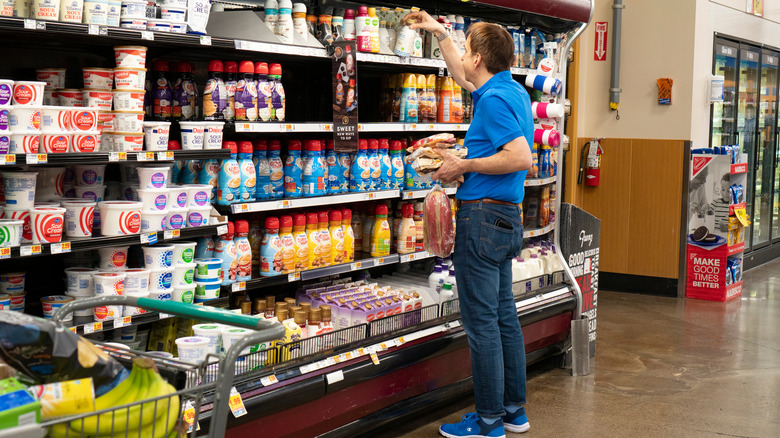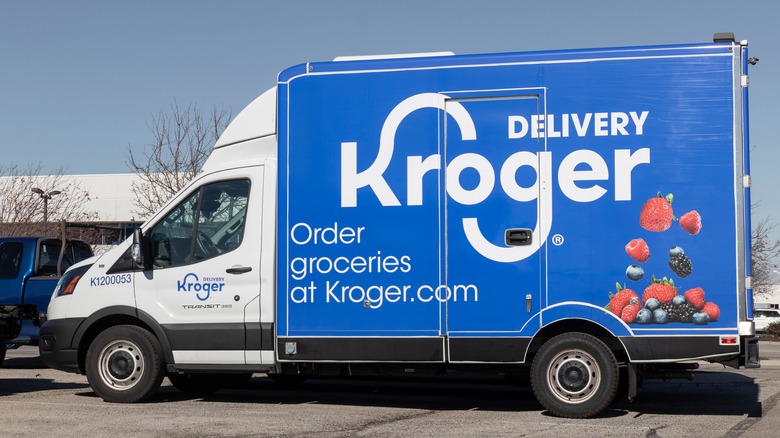What You Should Know Before Buying Organic Food From Kroger
For many, organic is merely an adjective to signify that the food is marked up. However, the Food and Agriculture Organization of the United Nations offers the skeptical consumer a series of reasons for why organic foods are consistently more pricey than their non-organic alternatives. Essentially, the standards that organic food has to meet, means that producers cannot bring out a high enough quantity of products to absorb the cost of production.
For example, organic farmers operate under strict rules about how and if they can even use pesticides. This makes their crop more vulnerable to pests, and so requires higher prices to recoup potential lost produce. Other costs include special organic land, the fact that it costs more to produce, and even the fee the USDA charges to label a product as organic (via The Balance Small Business).
So, even before considering which store you should purchase organic food from, the question arises of whether organic food is worth buying at all. In 2019, Harvard Medical School shared a list by the Environmental Working Group about which produce types should be bought as organic and which are safe even when produced by non-organic means. These lists include strawberries, apples, and celery, as foods that warrant organic means of production — while you can be looser with onions, broccoli, avocados.
Kroger is not the best value
The reason you might want to think twice about buying organic food from Kroger is not the cost of organic food, but the cost of buying it. Passionate Penny Pincher Founder, Laurie Hise, told CNBC that the prices of organic food at Kroger were higher than those at Aldi and Trader Joe's. However, she did praise Kroger's meat options, saying, "The meat is a really good value. Their meat sales actually beat the Aldi and Walmart prices consistently."
A separate CNBC piece confirmed that Aldi was the place to go to buy organic food. This is not because Aldi happens to have excellent relations with organic businesses. Rather, it is the same story about how Aldi's extreme cost-cutting, means that the German business can often give its customers the best price options (via CNN). Organic food is inherently more expensive to produce than non-organic food. So, Aldi's strategy of cutting prices by as much as possible, means it is the best placed brand to offset that inherent issue.

